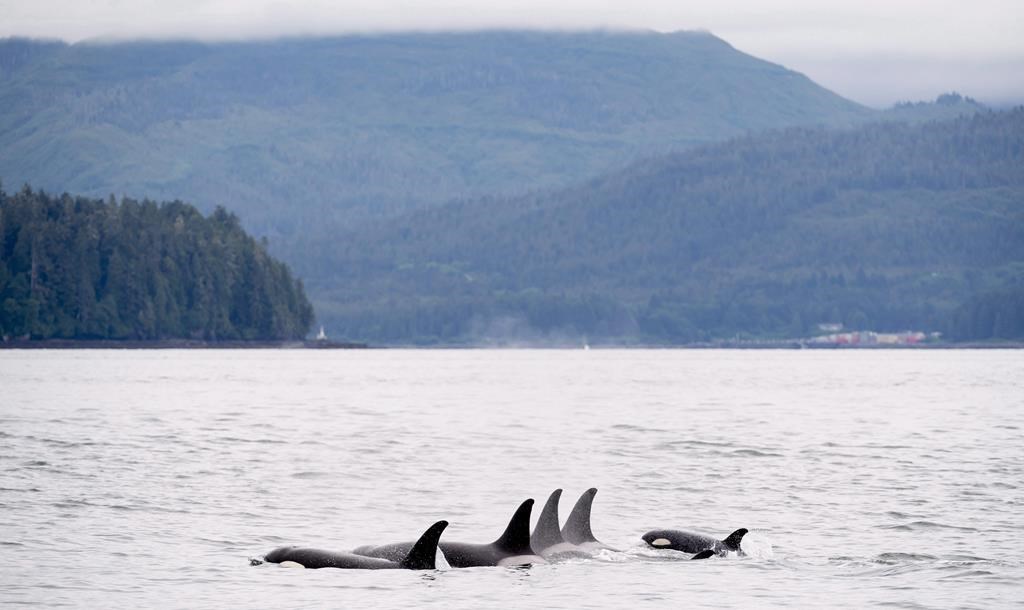VICTORIA — A long-running study of more than 50 dead killer whales in the Pacific Ocean concludes human activities pose deadly threats to the orcas.

Killer whale deaths from Alaska to British Columbia, south to California and west to Hawaii linked to human activities were found in every age class from calves to adults, said the study published Wednesday in the open access journal Plos One.
The findings indicate that understanding and being aware of each threat is vital for the management and conservation of orca populations, said Stephen Raverty, a B.C. scientist and the report’s lead author.
Some of the direct causes of orca deaths were attributed to blunt force trauma from collisions with ships or cuts from the propellers of vessels, while indirect causes were related to ingested fish hooks, various human-caused pollutants and malnutrition, Raverty said in an interview.
“In one case in Alaska, a young animal swallowed a hook that perforated the back of the throat and resulted in bacteria entering the body and the animal died of a blood-borne bacteria infection,” he said.
In another necropsy conducted on an older orca, a triple-barbed fishing hook was found in the animal’s colon, but it did not appear to impact its health, Raverty said.
Raverty, who’s a veterinary pathologist at the B.C. Agriculture Ministry and a marine mammal researcher, said the study also provides a baseline understanding of orca health necessary for future research.

“There have been a variety of indirect things that have been demonstrated to impact killer whale health and what we’re saying is this is more direct evidence of human activities that impact the overall well-being of these animals,” he said.
The study involved necropsies on the remains of 53 killer whales found from the North Pacific to Hawaii from 2004 to 2013. It also examined the data from 35 other orca deaths from 2001 to 2017, said Raverty.
The study was able to confirm the cause of death in 22 of the 53 orcas, and “death related to human interaction was found in every age class.”

It said necropsies showed evidence of 15 infectious agents and 28 pathogens with the potential to affect orca health, but “non-infectious health concerns include impacts from accumulated persistent pollutants, human interactions including vessel collisions, interaction with fishing gear, the effects of noise and consequences of reduced prey availability.”
Raverty said the study’s results should support federal government efforts to reduce and slow down shipping traffic and noise pollution to protect threatened orca populations, including the West Coast’s southern residents that now number 73 members.
The federal government recently expanded orders for B.C. whale-watching vessels, requiring them to stay 400 metres away from orcas on their viewing voyages.
“You think of these animals as being very agile and being able to avoid impact with vessels, but that doesn’t appear to necessarily be the case,” Raverty said. “Whether it’s just the vessel’s speed or there’s increased shipping traffic or these vessels are going into some fairly narrow channels where whales may not be able to avoid or evade these vessels, these might be some of the conditions that are occurring.”
- Joffre Lakes to close for 3 periods this year under agreement with First Nations
- ‘Why aren’t we doing more?’ White Rock on edge with killer on the loose
- B.C. carjacking victim says she doesn’t trust the ‘catch-and-release’ system
- Inquest into fatal Surrey hostage-taking recommends cameras for ERT teams



Comments